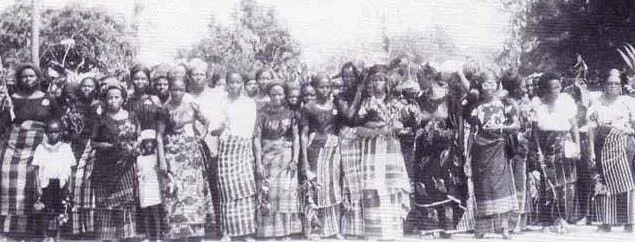December 11th marks the 54th anniversary of the great anti-tax revolt of Nigerian women, known in history as the Aba Revolt. The uprising at Aba on the fateful, rebellious day, was a culmination of (a)movement that pitched Nigerian women, as a detachment of the people, against the oppressive colonial, British imperialist occupation.
It should be stressed that apart from stealing the land and other natural resources of our country, cash taxation was another weapon the British used as a means of oppression, and of forcing people into wage slavery and forced labour in the ports, railways, and the mines.
To illustrate, taxes that the British tried to impose, led to uprisings at Iseyin in 1916, Abeokuta in 1918, Warri and Sapele in 1927. Even before these dates, a British decision to impose a land and house tax in 1895, and a water rate in 1908, led to significant anti-colonial uprisings by our people.
The fact remains that the revolts of 1929 were much more intensive, violent, and organised than the previous ones. It had another dimension to it: that it was organised and led by women, who proved beyond any doubt that women when properly organised, can and have played a very important part in the national liberation struggle of the Nigerian people.
What then were the causes of the revolts of 1929? 1929 was oneof the most difficult years for the peoples oppressed by capitalism in both the centres of capitalism and the colonies-these were the years of the Great Economic Depression. Following so shortly after the First World War, with the terrible losses in terms of human lives and material values.
According to figures of that period, there was a 37% drop in the industrial production of the capitalist world; the value of Foreign trade dropped from 68 thousand million Dollars in 1929 to 26 thousand million in 1932. While Unemployment was about 14 million in the U.S.A., 5.5 million in Germany, and 2.8 million in England (representing 22% of the labour force). The position for the colonies, including our country was very critical. It was this period that British imperialism re-organised its tax regime. Our people resisted heroically.
Way back in 1925, a violent protest against tax occurred in Calabar on the 1st of April. Tolls were imposed on the two markets in the town, under the Market Ordinance. In the Ibibio and Efik markets women refused to pay. They attacked all the colonial institutions around Calabar.
By 1927, a tax assessment survey in the Southern provinces of Nigeria, led to violent erruptions im the Warri province. The colonial army, suppressed the eruptions, killing 4 people. In the Abakiliki division women broke up many meetings called to discuss the issue of taxation.
1929 was the year of great anti-tax battles. In October 1929, the colonial government wanted to obtain information on the number of men, women, children, and livestock in the Oloko native court area of Bende Division of Owerri Province.
As could be expected, women again began a protest movement that spread to various parts of Owerri, Rivers, and Calabar provinces. On 12 December 1929, the Ayata Native Court was destroyed by women, while on the 19th and 20th of December, they forced the warrant chiefs at Umuahia (stooges of the British) to surrender their bloody and filthy chieftaincy caps.
The protests and revolts which occured at Aba however gave the name of the town to this movement of heroic and patriotic revolts. That was on the 11th of December 1929. On this day, over 10,000 angry and patriotic women attacked ALL the major symbols of exploitation in the town: Colonial government offices, Barclays Bank, the post office, the survey office and the African merchant stores.
But the revolts were far from ending there. On the next day, 12th December, there was another uprising at Imo River. While at Abowa in Okigwi women freed men from the prison. On 18th December, they again burnt the Omuma native court, the Umuaturu native court, and the Rest House.
The story was the same in the Calabar province. The revolt in Abak district ended with the loss of 4 lives on 14 December 1929. While on the 15th 18 women were killed and 19 injured at Utu-Etim-Ekpo. The next day saw the largest number of women killed and wounded-32 and 25 respectively at Opobo. So when we add up
the number of women killed resisting further oppression by the hated system of colonialism, during that widespread movement of the people, we have 57, while many more were injured.
What did that struggle to teach us? In the first place, the heroic revolt showed the important role women played in the struggle for national liberation in Nigeria. The barbarism shown by the British put the lie to their so-called ‘civilizing mission’ in our country. Pure and simple: colonialism was a system of plunder and looting of our natural resources and the exploitation of our labour-power.
It is equally true that Nigerian people at every stage put up resistance to colonialism, and they succeeded in conquering us, only because of their cunny, their superior fire-power, as well as the treachery of certain Nigerians: the so-called traditional rulers.
The lessons for today are numerous. The liberation for which women, workers, peasants, and other patriots fought and laid down their lives for, is yet to be achieved in Nigeria. Today women still constitute the most oppressed section of the working people in our neo-colonial capitalist society.
What is called for is the mobilization of the patriotic traditions of revolt of Nigerian women in today’s struggles against exploitation.
Hail the Patriotism of Nigerian Women!
Long live the memory of the women killed at Aba!!!


